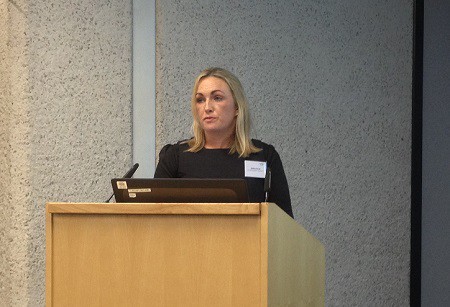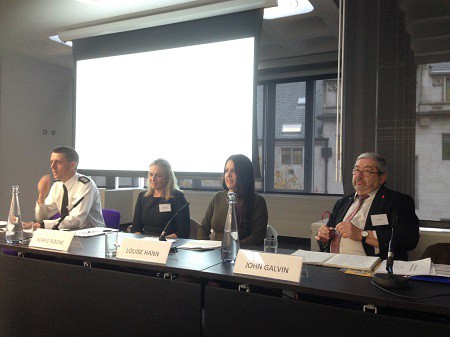Speaking at the Fire Prevention and Control conference in London this morning (November 9), the Agency’s Kerrie Roche explained how operators of waste sites handling combustible waste need to draw up Fire Prevention Plans in line with guidance issued in July 2016 (see letsrecycle.com story).

The Fire Prevention Plan (FPP) guidance is an update on previous rules stipulating various restrictions on the storage and separation distances between piles of waste materials.
However, Ms Roche stressed that operators could offer “alternative measures” to those proposed – provided they still met three main objectives of: minimising the likelihood of a fire happening; aiming for a fire to be extinguished within four hours; and, minimising the spread of fire within the site and to neighbouring sites.
She said: “There is room for flexibility… if you are in a less sensitive location we will consider alternative measures but you have to justify this and any extra risk.”
Alternative measures
This message was reiterated at the conference by Louise Hann, fire prevention plan advisor at the Agency. She said: “We are open to considering proposals for alternative measures as long as they refer to the three objectives in the guidance. That is a new thing, one of the key additions in the guidance.”
But, Ms Hann acknowledged that, as the guidance was relatively new, this flexibility was still “being embedded”.
Responding to concerns raised at the event by Sam Pentony of the British Metals Recycling Association that there was not much flexibility in reality, Ms Hann said: “We are at a difficult stage as it was only in July that the new guidance was issued. This new way of working around being open-ended is still being embedded. We haven’t got lots of examples to give you as it is still quite early days.
“What I can say is that where plans are rejected it is not obvious that those three objectives have been addressed.”
Ms Hann added that approval rates for FPP, which are soon to be handled by local Environment Agency officers instead of a central team, were improving.

She said: “A year ago the approval rate was 10% and now it is close to 50%. There is a learning curve that is happening.”
Waste crime
The Westminster event, which was organised by letsrecycle.com, also heard from waste industry expert John Galvin MBE, who offered a different perspective on how to prevent fires in the waste industry.
Mr Galvin highlighted the link between major incidents and waste crime and suggested that the Agency needed to do more to tackle poor-performers, who were damaging legitimate business.
He said: “69 of the 94 serious pollution incidents in 2015 were at permitted sites classified as poor performers by the Agency.”
Mr Galvin called for more penalties for those flouting the law through use of proceeds of crime, alongside action against individuals in companies going into liquidation and bans on being a director.
He said the Agency should continue to increase refusal and revocation of permits and removal of registration of non-exempt operations, while the Agency’s funding should also be reviewed.
He commented: “There has been a tendency to be nice to businesses ever since the economic problems in 2008, I think that ship is turning and now the Environment Agency are doing more. But it has still got a long way to go, and it is in the context of limited funds and resources.”
Fire service
During the same session, Mark Reed from the Chief Fire Officers’ Association outlined the scale of the problem of waste fires and how incidents had increased in line with the increase in recycling. The Association has been working with the Environment Agency to help bring the number of fires in the waste industry down.
He highlighted the community, environmental and economic impact of these incidents, noting that “it costs the economy £1 million a minute every time a motorway is shut”. Mr Reed also said that major incidents diverted resources from “potential life-saving and rescue response”.










Subscribe for free